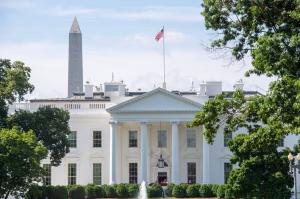
3381. Cruel and Usual: Republicans Prepare to Gut Medicaid
Paul Krugman discusses the potential cuts to Medicaid by Republicans and the implications for low-income Americans, particularly in states like West Virginia.
your daily dose of economic commentary

Paul Krugman discusses the potential cuts to Medicaid by Republicans and the implications for low-income Americans, particularly in states like West Virginia.

Maria Aspan discusses how President Trump's budget cuts are impacting the FDIC's ability to prevent banking crises.

Danielle Kurtzleben discusses Trump's repeated delays in implementing tariffs on Canada and Mexico, highlighting the uncertainty surrounding his trade policies.

Noah Smith provides a list of recommended and discouraged popular economics books for laypeople, emphasizing the importance of critical reading in economics.

Paddy Hirsch discusses the economic challenges faced by European NATO members in funding their defense needs amid financial struggles.
Tyler Cowen shares insights on various books he has read, highlighting their themes and personal connections to the content.

Amanda Aronczyk discusses the controversy surrounding Tyson Foods' closure of a plant and its subsequent hiring of asylum seekers, impacting local workers in Perry, Iowa.

Stacy Hawkins discusses the implications of Trump's executive orders on DEI efforts and the legal challenges they face, emphasizing the president's authority and potential impacts.

Kelebogile Zvobgo discusses Trump's Gaza takeover proposal, highlighting its potential legal violations and risks for American servicemembers involved in the plan.

Robin Brooks and Ben Harris discuss Russia's shadow fleet, its origins, and its role in circumventing sanctions imposed by the G7 and Australia on Russian oil exports.

David Henderson discusses Hayek's contributions to the socialist calculation debate and the importance of decentralized information in market economies.
![Hello ‘nversion, My Old Friend…[updated]](https://econbrowser.com/wp-content/uploads/2025/02/termspreads_vix1b.png)
Menzie Chinn discusses the current state of economic indicators, particularly focusing on the 10-year and 3-month Treasury spread and its implications for recession predictions.

Scott Sumner discusses how the New York Times' recent article on immigration allows American liberals to reconsider their stance, while critiquing its economic claims and data presentation.

David Folkenflik discusses Jeff Bezos' changes to the Washington Post's editorial section, leading to the resignation of an editor.

Jon Murphy discusses the misconceptions surrounding tariffs, emphasizing the importance of political incentives and the failures of tariffs as negotiation tools.

Rachel Treisman discusses how Duolingo's owl mascot faked its death to boost user engagement and attract celebrity attention.

Andrea Hsu discusses the Trump administration's approach to federal employees, highlighting Elon Musk's influence on their tactics.

Nate Silver seeks an Assistant Sports Analyst to improve sports models, focusing on data analysis and visualization for upcoming NFL, NBA, and college basketball seasons.

David Folkenflik discusses Keith Woods' retirement from NPR and the prominence of diversity, equity, and inclusion in current political discussions.

Tom Lawler critiques Treasury Secretary Bessent's claim about the Fed being a "big seller" of Treasuries, clarifying the Fed's actual purchasing behavior.